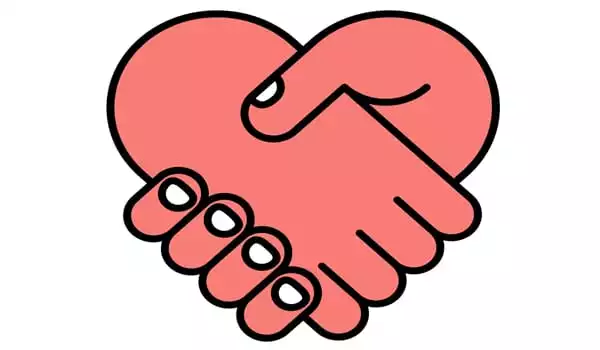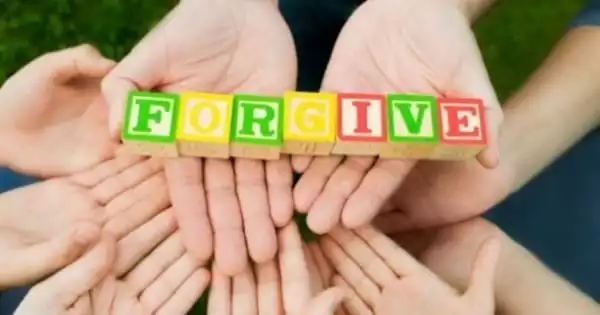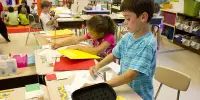According to a recent study, teaching children to understand other people’s points of view may make it easier for them to learn how to forgive others. The study also discovered that teaching children to apologize sincerely can help them receive forgiveness from others.
“Forgiveness is important in children and adults for restoring relationships and limiting future conflicts,” says Kelly Lynn Mulvey, associate professor of psychology at North Carolina State University and lead author of the study. “However, we didn’t know much about what makes children more likely to forgive others, especially from infancy to adolescence. That’s what we wanted to look into with our research.”
Forgiveness programs typically invite families or students to participate in weekly group sessions led by a facilitator over a period of several weeks. Children are introduced to fictional character conflicts before being guided to reflect on their own personal conflicts. They investigate various approaches to dealing with the pain caused by conflicts, including the option of forgiveness. After children understand the fundamental concepts of forgiveness and what forgiveness is and is not, they are facilitated in their reflection on how to forgive—first as modeled by a story character, and then as a choice they can make toward forgiving someone who has hurt them.
Children can detect an insincere apology, and insincere apologies were not conducive to encouraging forgiveness. We discovered that children have sophisticated abilities to forgive others. Children are capable of and usually interested in restoring relationships with others.
Kelly Lynn Mulvey
Mulvey and her colleagues recruited 185 children between the ages of 5 and 14 for the study. Researchers conducted an in-depth interview with each child, gathering background information and assessing the child’s “theory of mind” abilities. Theory of mind refers to your ability to recognize that someone else’s beliefs, intentions, and desires differ from your own.
The children were then led through a series of scenarios involving other children from the “in group” and “out group.” Each study participant was told they were a member of a group, such as the green team. During interviews, researchers described some of the children in the scenarios as being on the green team (thus in-group), while others were on the yellow team (making them out-group). Interviewers in each scenario asked study participants if they were willing to forgive a group that left them out of a game or activity.

There were three major discoveries. For starters, children are more likely to forgive someone who has apologized. Second, children are more likely to forgive those who are part of their “in group.” Third, the more advanced a child’s Theory of Mind skills, the more likely it is that they will forgive others.
“We discovered that children have sophisticated abilities to forgive others,” Mulvey explains. “Children are capable of and usually interested in restoring relationships with others.”
The researchers identified two areas of forgiveness that parents and teachers may want to focus on. One example is teaching children the value of apologizing in a meaningful way.
“Children can detect an insincere apology, and insincere apologies were not conducive to encouraging forgiveness,” Mulvey says. “The apology should demonstrate that someone understands why what they did was wrong. As a result, other kids are more likely to give them a second chance.”
The second focus area is assisting children in understanding the perspectives of others, even if they differ from their own.
“One of the most important implications of our research is that teachers and parents must actively assist children in developing theory of mind skills,” Mulvey says. “A good starting point is to ask children to explain why they are acting the way they are and how their actions may affect others. Developing these skills in children will help them navigate a diverse and complex world later in life.”
“In the face of injustice, forgiveness is a difficult virtue to exercise and difficult to implement,” explain Enright and Fitzgibbons, “but it offers a concrete hope for peace.” They recommend at least once a week family forgiveness gatherings, such as during mealtimes, to discuss what forgiveness means, how it feels, and what is easy and difficult about it.
Because conflict is unavoidable, teaching children about forgiveness early on, beginning with conflicts with playmates over frisbees and soccer balls, may be a path toward creating communities of people who value and cultivate peace.














